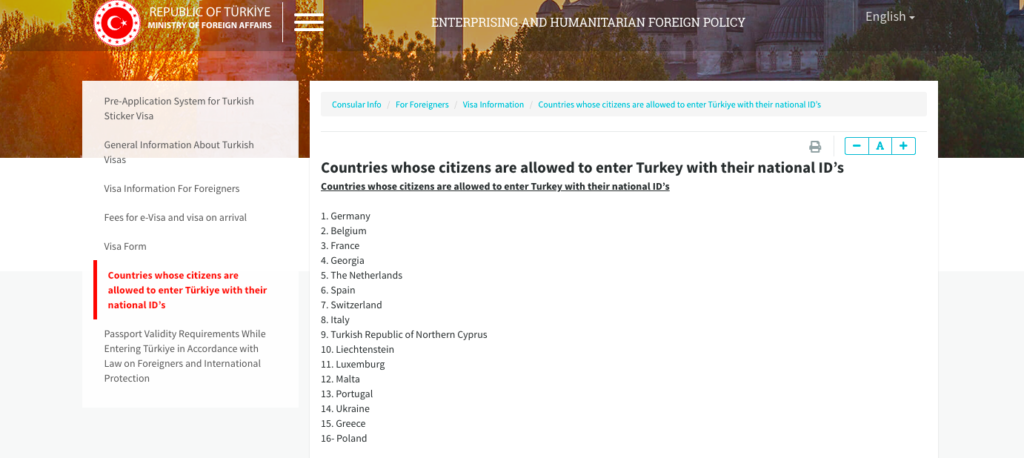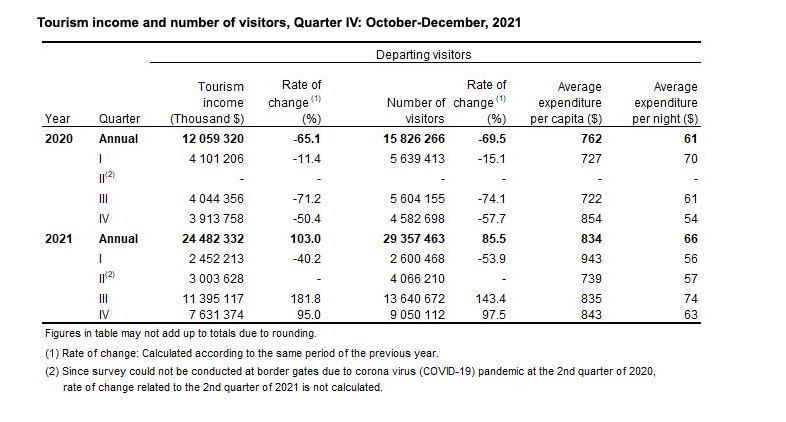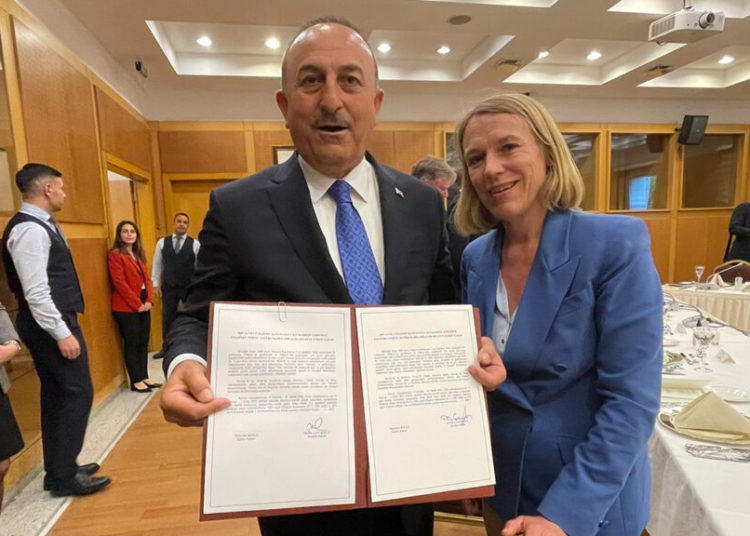Levent Kenez/Stockholm
With a decision made by Turkish President Recep Tayyip Erdoğan and published in the Official Gazette this week, Bulgarian citizens are now allowed to enter Turkey without the need for a passport and visa. Bulgarian tourists travel to Turkey particularly to do shopping due to the depreciation of the lira against the euro.
Turkey has recently allowed Norwegian citizens passport-free entry. Although the Turkish Ministry of Foreign Affairs initially denied this after a negative reaction from the opposition, which stated that Turkish citizens should have the same opportunity as a requirement of reciprocity, Foreign Affairs spokesman Tanju Bilgiç later had to announce that due to the fact that Norwegian citizens were unable to extend their passports because of the worldwide chip crisis, and upon the request of the Turkish tourism sector, Norwegians will be able to enter Turkey with their national identification cards.
Citizens of not only Norway and Bulgaria but also 16 other countries can enter Turkey with only their identity cards. These countries are Germany, Belgium, France, Georgia, Netherlands, Spain, Switzerland, Italy, Liechtenstein, Luxembourg, Malta, Portugal, Ukraine, Greece, Poland and the Turkish Republic of Northern Cyprus (KKTC), a state recognized only by Turkey.
Turkish citizens can only travel visa-free to Georgia, the KKTC and Ukraine from among these countries.
Citizens of Germany, Belgium, France, Spain, Switzerland, Luxembourg and Portugal were even allowed to enter Turkey with their expired passports.

While Turkey, which is a tourism destination, provides this ease of entry for visitors, making tourism professionals happy, there are also those who are against these privileges. Main opposition deputy Utku Çakırözer claims that Turkey has been stripped of its national honor because of its deteriorating economy and has not defended the rights of its citizens. According to Çakırözer, it’s scandalous that Turks can only enter Norway, where citizens from 62 countries can enter without a visa, by obtaining a visa.
The issue with which Turkish citizens have the most problems in their travels is the Schengen visa, which they must obtain to enter the European Union. Turkey lodged an objection with the Parliamentary Assembly of the Council of Europe (PACE) regarding the abuse of the Schengen visa system on July 5. The complaint revealed that 4 percent of Schengen visa rejections in 2014 had increased to 12.7 percent by 2020. The report drew attention to such issues as unnecessary and too many documents required, high fees and the necessity of applying in person.
According to official data, the Turkish Central Bank’s total reserves decreased by $1.042 billion in the week of July 22 compared to the previous week, from $99.365 billion to $98.323 billion.
Net reserves, which were $6.4 billion the previous week, increased to $6.7 billion in the week of July 22. Net reserves excluding swaps decreased to minus $55.4 billion from minus $54.8 billion.

Due to the pandemic, Turkey’s tourism revenue suffered significant losses in 2020 and 2021. Although revenue doubled in 2021 over the previous year and reached $24.5 billion, the tourism industry has not yet recovered considering that it was $34.5 billion in 2019.
Personal expenditures constituted $19.7 billion and package tour expenditures accounted for $4.8 billion. Tourists visiting Turkey spent $834 per person in 2021.
The Ministry of Tourism expects 42 million tourists and $35 billion in revenue in 2022. However, the number of tourists coming from Russia and Ukraine, which are among the three countries with the highest number of tourists, is expected to decrease due to the ongoing war in Ukraine.
Another area where Turkey earns revenue is from the foreign currency brought in by foreigners living in Turkey. Turkey has hosted a record number of foreigners in recent years due to migration and by providing citizenship in return for investment, the acquisition of property or a deposit in Turkish banks, which it has been implementing for a while to meet its foreign exchange needs.
The number of foreigners living legally in Turkey in 2021 increased to a record level. According to official statistics obtained by Nordic Monitor, there were a total of 1,300,220 foreigners with residence permits in Turkey in 2021, compared to 886,652 in 2020. The most common type of residence permit was a short-term residence permit granted to 954,812 people. Foreigners who own real estate in Turkey and tourists who extended their stay most frequently applied for short-term residence permits. There are 114,732 people in Turkey with student residence permits. Foreign nationals who are married to a Turkish citizen or have children with them benefit from a family residence permit, which was given to 89,595 people in 2021.












